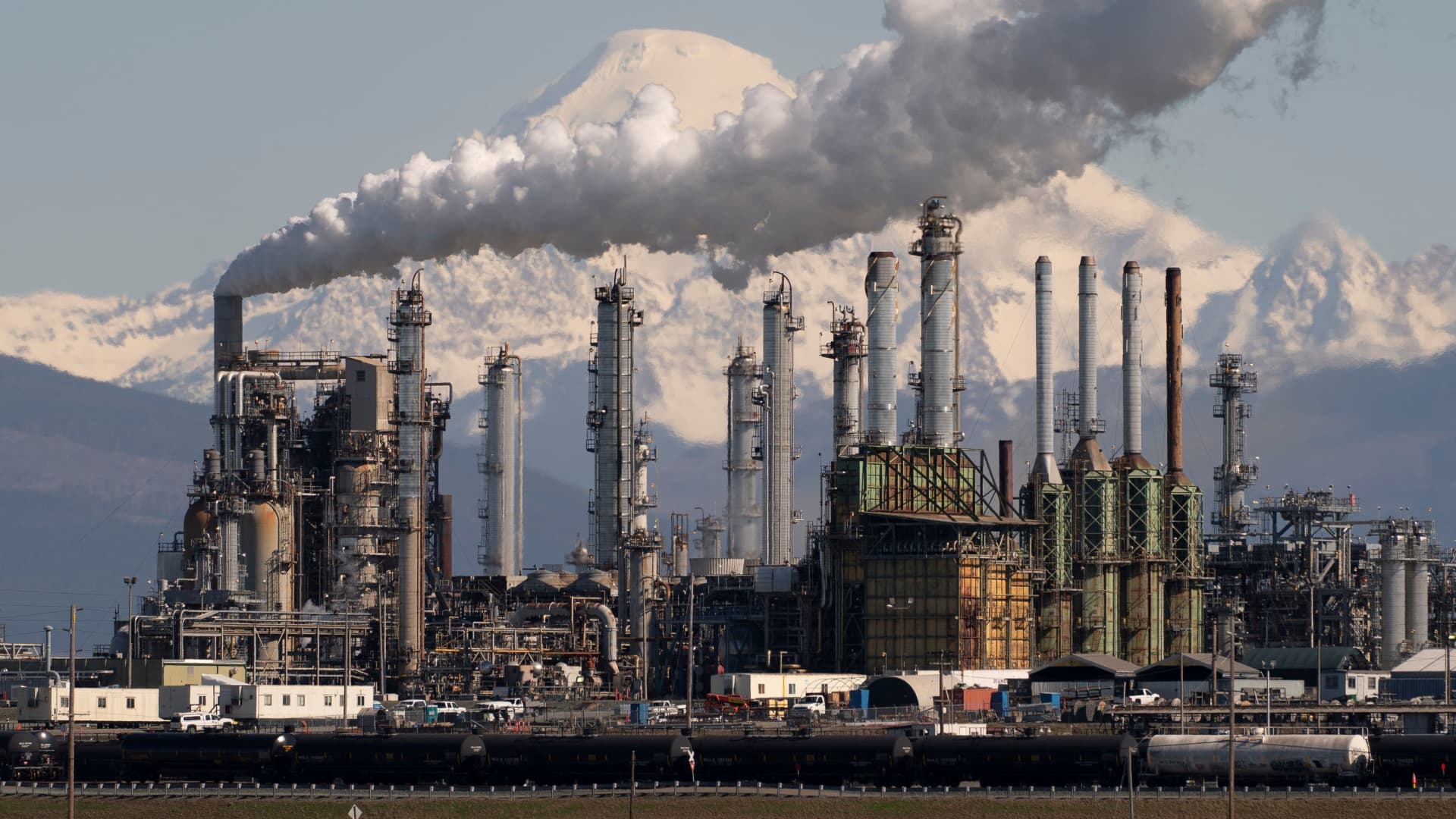
- The White House on Thursday announced the largest ever Strategic Petroleum Reserve release.
- The move comes as the Biden administration seeks to tackle surging oil and gas prices.
- In a research note Thursday, Goldman Sachs commodity analysts said the SPR release would help the oil market toward rebalancing in 2022, but would not resolve its structural deficit.
Oil prices were lower on Thursday as the White House announced that it will release 1 million barrels per day of oil for the next six months from the Strategic Petroleum Reserve — in an effort to calm spiking oil and gas prices.
International benchmark Brent crude ended the day at $107.91, for a loss of 4.88%. U.S. crude futures for May delivery settled 6.99% lower at $100.28 per barrel.
"The scale of this release is unprecedented: the world has never had a release of oil reserves at this 1 million per day rate for this length of time. This record release will provide a historic amount of supply to serve as bridge until the end of the year when domestic production ramps up," the administration said in a statement.
Oil prices dropped sharply Wednesday evening after reports that such a move was likely. President Joe Biden is set to give remarks later on Thursday.

"It is hard to overstate the scale of this intervention," said ClearView Energy Partners. The firm noted that this is the largest-ever SPR release by a factor of 3.6X. The second largest on record was the 50 million barrel release in November.
Money Report
Gasoline prices have surged to record highs on Russia's invasion of Ukraine and subsequent supply concerns, driving spikes in inflation across the global economy.
Russia is the world's second-largest exporter of oil, and unprecedentedly punitive international sanctions following the invasion have disrupted flows out of the country.
In a research note Thursday, Goldman Sachs commodity analysts said the release from U.S. reserves would help the oil market toward rebalancing in 2022, but would not resolve its structural deficit.
"This would reduce the amount of necessary price-induced demand destruction, the sole oil rebalancing mechanism currently available in a world devoid of inventory buffers and supply elasticity," Goldman Sachs said.
"This would remain, however, a release of oil inventories, not a persistent source of supply for coming years. Such a release would therefore not resolve the structural supply deficit, years in the making."
They added that lower prices in 2022 would support oil demand while slowing the acceleration in U.S. shale production, leaving a deficit in 2023 and a likely need to refill the U.S. reserves.
The International Energy Agency will hold an emergency meeting on Friday to discuss oil supply concerns, Australian Energy Minister Angus Taylor announced on Thursday.
The Organization of Petroleum Exporting Countries and its allies including Russia (known as OPEC+) met on Thursday, deciding to hold production output largely steady. The group will boost output by 432,000 barrels per day beginning May 1.
"[I]t was noted that continuing oil market fundamentals and the consensus on the outlook pointed to a well-balanced market, and that current volatility is not caused by fundamentals, but by ongoing geopolitical developments," OPEC said in a statement following the meeting.
A 'risky strategy'
Ed Bell, senior director of market economics at Emirates NBD, told CNBC on Thursday that despite the record scale of the expected SPR release, an enormous downswing in its immediate aftermath would be unlikely.
"Markets are still going to be very much squarely focused on supply going forward and the lack of it that we're going to be seeing from Russia, the incremental additions we're going to be seeing from OPEC+ and so far the real lack of price response from U.S. producers to high prices," Bell told CNBC's "Capital Connection."
"For the longer term though, I do think this is a bit of a risky strategy for the U.S. to draw down on its SPR so heavily if you think that we're going to be going into the more heavy use summer months in the United States, we're going to be drawing down inventories just as we're going to be needing them in a time of uncertain supply conditions."
Bell added that if the oil market maintains a structural deficit for a prolonged period, drawing down on U.S. reserves could "help underpin a bullish case for oil prices" over the next 12 to 24 months.






